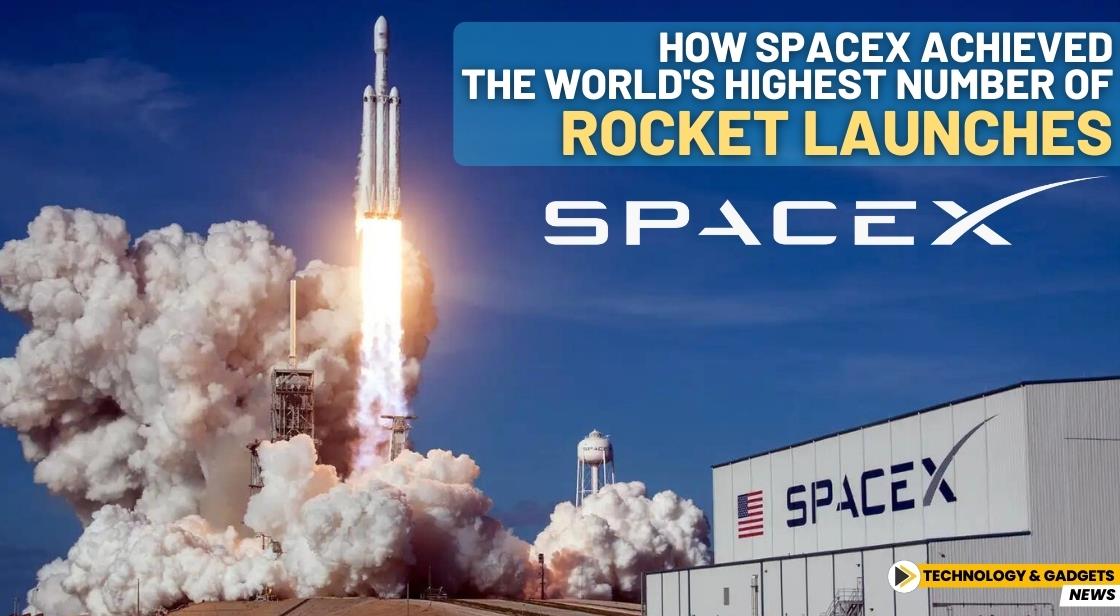How SpaceX Achieved the World's Highest Number of Rocket Launches

News Synopsis
SpaceX is on the verge of breaking its own record for the number of orbital rocket launches in a single year. However, with two of its rockets currently grounded, the company faces temporary challenges.
Approaching a Milestone
As of the recent launch of a Crew Dragon spacecraft aboard a Falcon 9 rocket from Cape Canaveral Space Center in Florida, SpaceX has equaled its previous annual record of 96 launches, set in 2023. This latest mission, which occurred on a Saturday, is part of a critical rescue operation to bring back two astronauts stranded aboard the International Space Station (ISS). However, despite the successful liftoff, a complication occurred during the Falcon 9's second stage when it was returning to Earth.
An Off-Nominal Landing
While the astronauts aboard the ISS remained safe, and no injuries or property damage were reported on Earth, the Falcon 9’s second stage landed outside the designated hazard zone established by the Federal Aviation Administration (FAA). This unexpected issue, referred to as an "off-nominal deorbit burn," prompted SpaceX to voluntarily pause further launches of its Falcon 9 rockets.
The Falcon 9 rockets have been crucial to SpaceX's success, accounting for over 90 percent of all orbital launches conducted by the company in 2024. This temporary suspension of launches, while not catastrophic, comes at a critical moment as SpaceX inches closer to breaking its own annual record.
Investigating the Cause
SpaceX made the decision to halt its launches while it investigates the root cause of the deorbit issue. The company aims to fully understand and address the problem before resuming operations, ensuring the safety and reliability of future missions. As part of this process, the FAA has confirmed that it is awaiting the results of SpaceX's investigation. Until then, the regulatory body has put a hold on any new launches involving Falcon 9 rockets.
This pause affects not only SpaceX’s commercial satellite launches but also important missions, including NASA's Europa Clipper mission, which was set to explore Jupiter's icy moon. Additionally, the suspension has delayed the deployment of more Starlink satellites, a key part of SpaceX’s plan to provide global internet coverage from low-Earth orbit.
Challenges with Starship's Next Test Flight
The delay also impacts SpaceX's Starship program, with the next orbital test of the world’s largest rocket postponed. Despite SpaceX CEO Elon Musk claiming that Starship has been ready for launch since August, the FAA has yet to approve the mission. Musk has been vocal in his frustration, accusing the FAA of "regulatory overreach" by delaying the mission. However, the FAA has provided a different perspective.
FAA’s Response to Musk's Criticism
According to the FAA, SpaceX made several modifications to the upcoming Starship mission, which triggered a more thorough safety and environmental review. Specifically, the changes involved new variables in the mission’s profile, which required additional examination. In mid-August, SpaceX submitted new information outlining how the environmental impact of the fifth Starship flight would affect a larger area than previously assessed.
One of the notable updates to the mission is the attempt to catch the Super Heavy booster using a unique "chopsticks" mechanism integrated into the launchpad. This ambitious method aims to capture the massive booster as it returns to Earth, reducing the need for recovery operations in other locations. Given the complexity and scale of this new approach, the FAA deemed it necessary to perform a more in-depth review.
Mission Delays Extend Into Late 2024
The FAA has indicated that its review of the revised Starship mission plan will not be completed until at least late November 2024. This delay means that SpaceX will have to wait longer before conducting the next Starship orbital flight test, pushing back its plans to further develop its deep-space exploration capabilities.
In the meantime, SpaceX continues to focus on its immediate goal of resuming Falcon 9 launches as soon as possible. Once the issues with the recent launch are resolved, the company is expected to surpass its 2023 launch record, reinforcing its position as the world leader in space transportation.
Conclusion: SpaceX’s Future Prospects
Despite these temporary setbacks, SpaceX's trajectory remains strong. With over 90 percent of all orbital launches this year carried out by the company, it has cemented its role as the leading player in the global space industry. The current pause on launches, while disruptive, is a necessary step to ensure long-term safety and success.
Looking ahead, SpaceX’s Starship project, once cleared by the FAA, promises to bring revolutionary changes to space exploration. If the next test flight proves successful, it could pave the way for missions to the Moon, Mars, and beyond, fulfilling Musk’s vision of making humanity a multi-planetary species.
In the short term, however, SpaceX's ability to resume Falcon 9 operations will determine whether it can break its own record for the most launches in a single year. As the company navigates these challenges, its commitment to innovation and safety will play a crucial role in shaping the future of space travel.
You May Like









